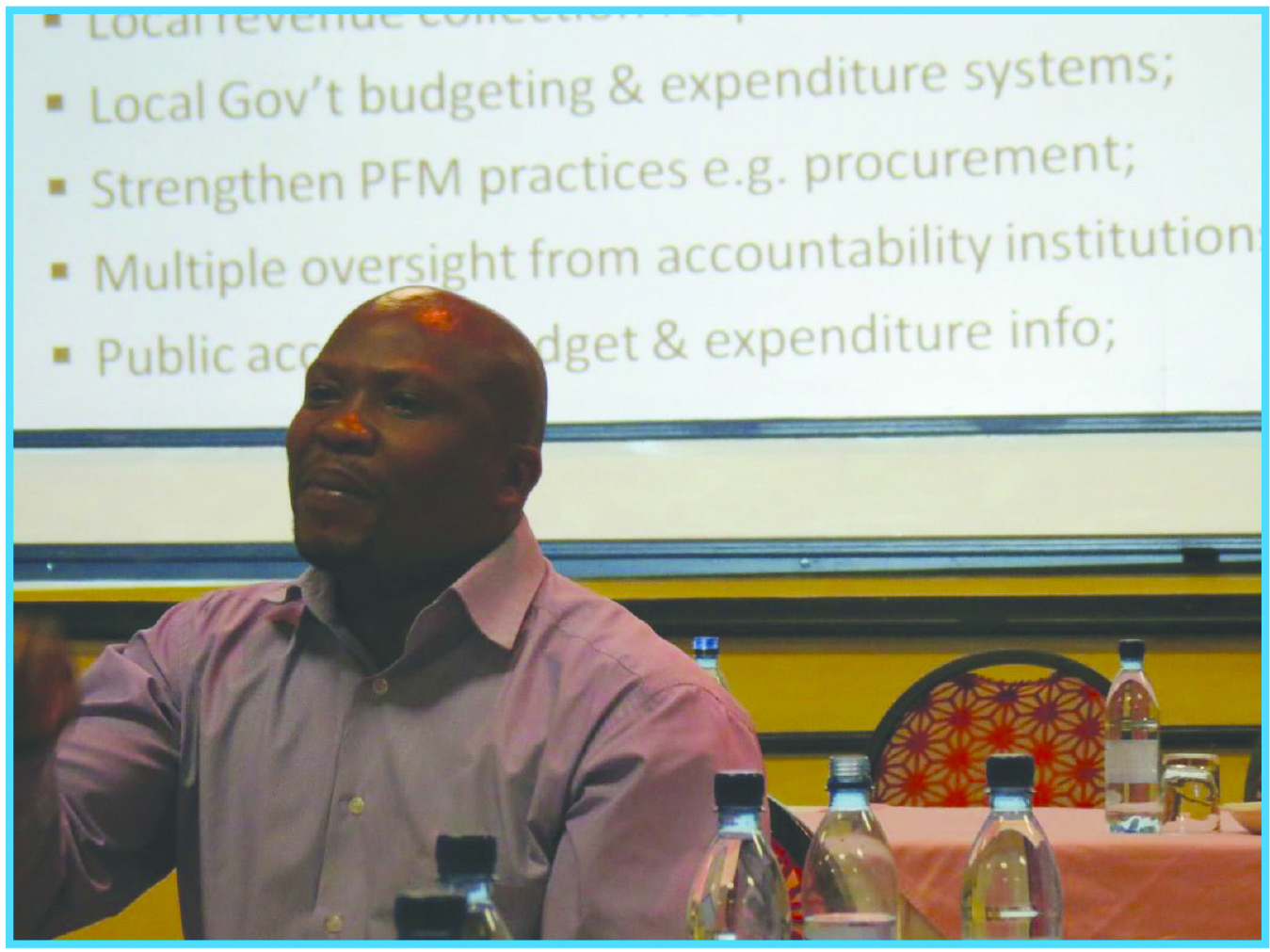|
|
Lesotho Council of NGOs (LCN) attended a one day workshop hosted by the
Ministry of Local Government, Chieftainship and Parliamentary Affairs on the
23rd October 2014. The event was held at Maseru Sun Cabanas with the aim of
sharing the National Decentralisation Policy to non-state actors in Lesotho
and soliciting their comments. The event was held following a series of
back-to-back consultations with relevant stakeholders, which led to the
cabinet approval of the National Decentralisation Policy (NDP) in February 2014.
The event was in-line with the Deepening Decentralisation Project (DDP),
which is being implemented by LCN together with its partners and associates
in 20 community councils. DDP is a three year project funded by the European
Union which is meant to build the capacity of local Non-State Actors for
constructive engagement in local government.
The objectives of the National Decentralisation Policy are:
- Increase citizens' access to public services
- Ensure a quality and accountable service delivery at local levels;
- Increase participation of citizens and Non-state organisations in governance and service delivery;
- Promote equitable economic development;
- Promote livelihood and economic security;
- Enhance local autonomy by ensuring that local government institutions are capacitated and organised with a strong collective voice;
- Promote the preservation of national values, identity and unity by re-positioning and empowering the chieftainship and other traditional institutions.
 |
|
Mr Makhetha Mokuoane, from the Ministry of Local Government, Chieftainship and Parliamentary Affairs, presenting the National Decentralisation Policy to Non-State Actors. |
The event was based on a single presentation made by Mr Makhetha Mokuoane from the Ministry of Local Government and discussion thereafter. Mr Mokuoane presented the key policy focus and strategic action of the of the National Decentralisation policy namely;
- Adopt devolution as a mode as the Mode of Decentralised governance ad service delivery.
- Establish local Governments with autonomy and executive authority.
- Develop and implement a strategic framework for participatory and integrated planning.
- Fiscal decentralisation and prudent public financial management;
- Develop a framework for exercising local autonomy and inter-governmental relations;
- Implement a strategy for human resources management in local governments;
- Provide an enabling legal framework for devolution;
- Introduce performance contracting to increase efficiency in service delivery;
- Develop mechanisms for participation and coordination of non-state actors;
- Implement a national strategy for local economic development;
- Develop data and information systems to support evidence-based decision making;
- Implement a strategy for settlement re-organisation and urban development;
- Implement a strategy for integrated land use planning;
- Re-defining the role and position of chiefs and the chieftainship;
- Decentralization to localize regional integration and international corporation;
- Civic Education programs to enhance citizens' empowerment and accountability;
- Communication strategy to foster inter-governmental relations and change management;
- Scale-up investment in ICT infrastructure to promote e-government and local economy transformation;
- Implement a strategy for community development and local development;
- Centre of excellence in decentralised governance and local development;
- Develop sustainable capacity at national and local level for effective decentralisation.
Upon presenting and discussing each of the above-mentioned strategies, the presenter
welcomed comments from the floor. Participants engaged in a dialogue and deliberations
will be recorded. The workshop came to the following recommendations;
- There is a need to develop a comprehensive implementation strategy which will outline the role of non-state actors in the process;
- There is a need to develop a Monitoring and Evaluation Framework with much emphasis on evaluation of project activities.
- Civil Society Organizations should be instrumental in disseminating the policy through their programmes.
LCN was represented by Mr Kanono Thabane who is the Programmes Director at Lesotho Council of NGOs.
|
|